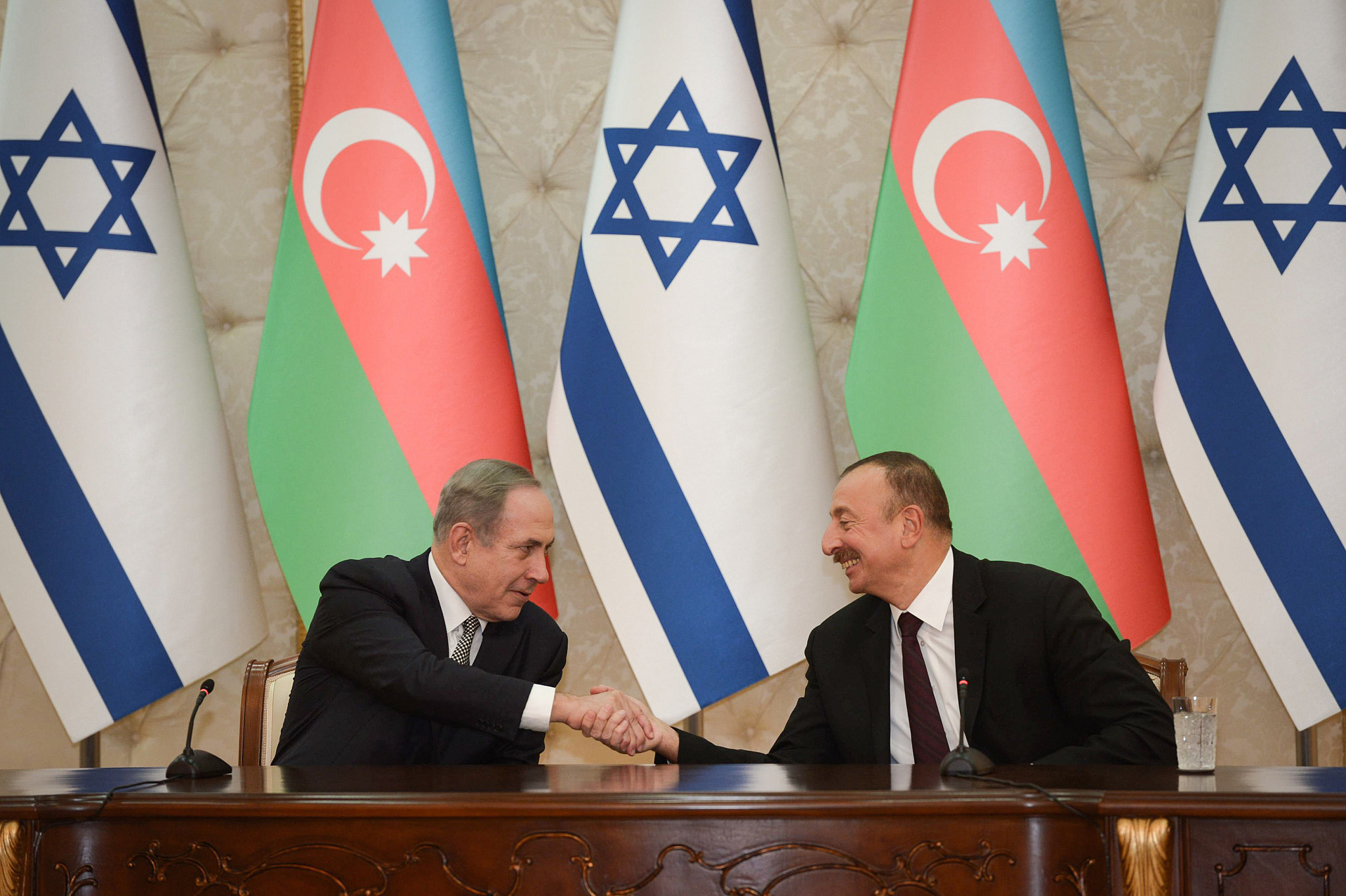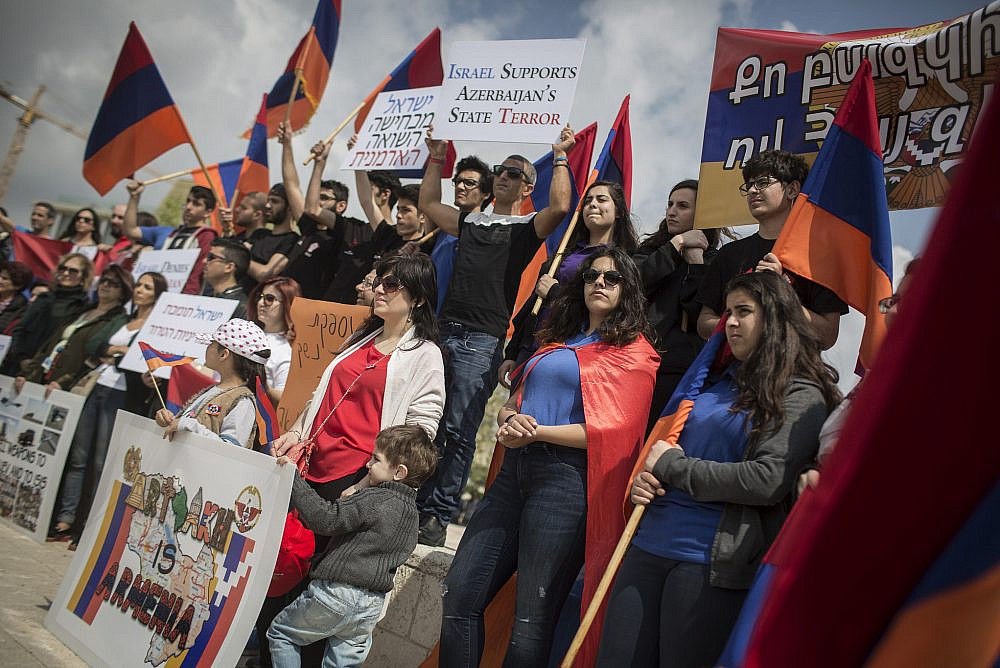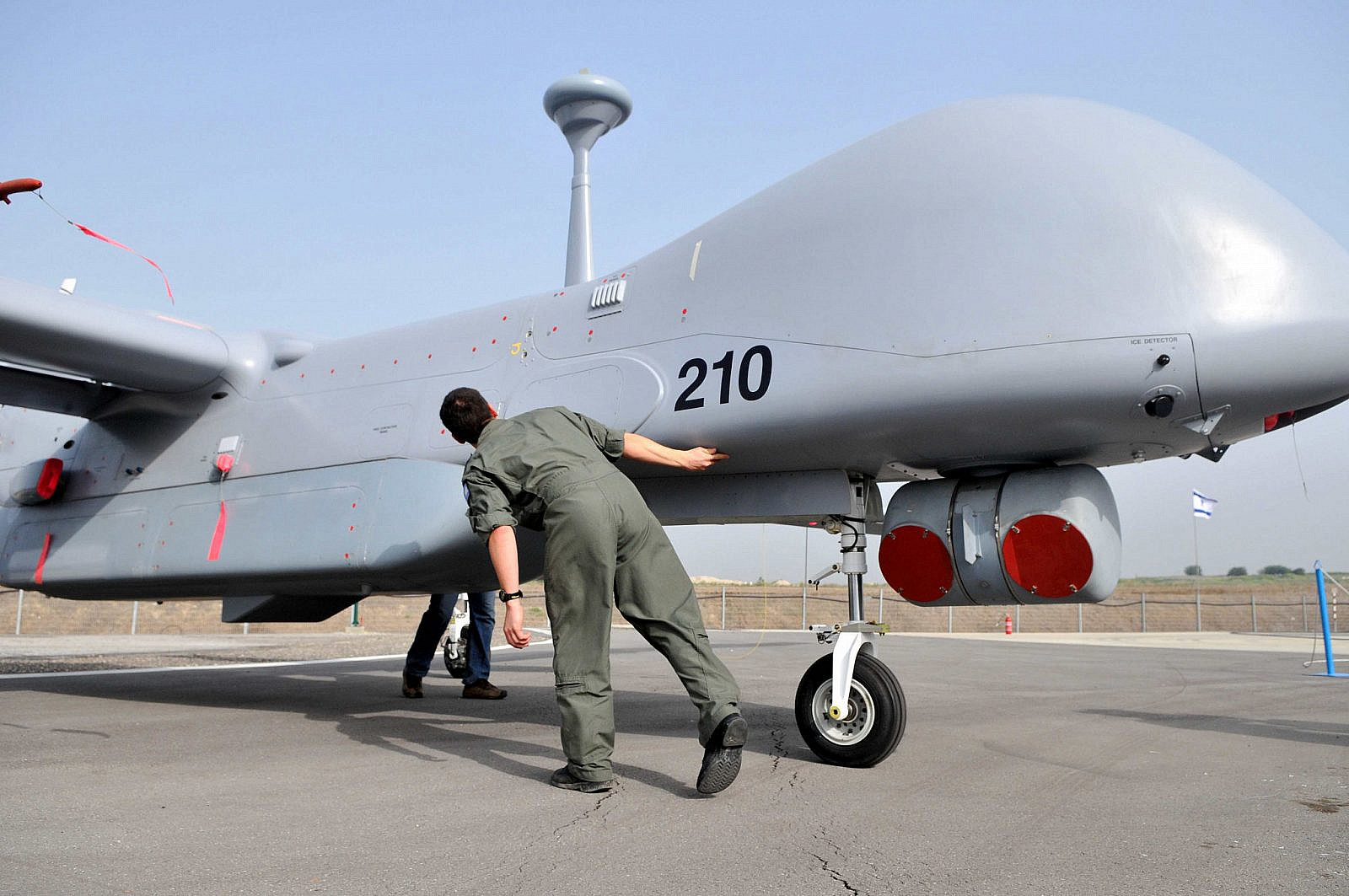The 32-year conflict over the Nagorno-Karabakh region between Armenia and Azerbaijan, which violently flared up again last week, is as much a complex story of the global arms trade as it is a territorial dispute.
Since 1993, the Aliyev dynasty has ruled Azerbaijan as a dictatorship, with President Ilham Aliyev succeeding his father, Heyder, in 2003. In addition to holding onto its authoritarian power, the Aliyev regime has been keen to take back Nagorno-Karabakh, an area that is internationally recognized as part of Azerbaijan but has been claimed and controlled by ethnic Armenians.
In the 1980s, as the Soviet Union’s hold over its constituent republics weakened, Nagorno-Karabakh voted to become part of Armenia, triggering a war that killed at least 30,000 people and forced hundreds of thousands to leave their homes. Russia mediated a fragile ceasefire in 1994, which seemingly ended the fighting and kept Nagorno-Karabakh under Armenian control.
The Minsk Group, formed in 1992 by the Organization for Security and Cooperation in Europe (OSCE), sought to bring about a peaceful solution to the disputed territory. At the time, the OSCE called on its member states to impose an arms embargo on all parties involved in the conflict, Accordingly, in 1993, the United Nations issued a non-voluntary ban on arms exports to Azerbaijan, but it is assumed to be no longer active since 2002.
More than 26 years later, however, these international efforts have failed to push Armenia and Azerbaijan toward a negotiated solution. Each side repeatedly accused the other of repeated violations of the ceasefire; from time to time, soldiers and civilians are killed or wounded by sniper fire or other violent acts.
Deteriorating conditions
Azerbaijan’s geopolitical importance has declined since 2016, following the signing of the Iran nuclear deal and a drop in oil prices. President Aliyev began an ongoing process of disengagement from Western countries, seeking stronger ties with Turkey and Russia, despite Russia being one of Armenia’s main arms suppliers.
Azerbaijan’s economy is almost entirely dependent on the now-plummeting prices of oil and gas. With their quality of life declining, Azerbaijani citizens have become increasingly reluctant to keep silent about the violations of their basic human and civil rights. In the absence of a solution to the country’s sinking economic and international standing, Aliyev has chosen to deepen the repression and persecution of his citizens.
In parallel to this deterioration, Turkey, one of Azerbaijan’s key allies, is struggling with its own economic crisis that began even before the COVID-19 pandemic. Since a failed military coup attempt in July 2016, Turkish president Recep Tayyip Erdoğan has arrested and persecuted thousands of journalists, opposition figures, and human rights activists, while also carrying out a mass purge in the Turkish public service.
Gripped by his megalomania, Erdoğan embarked on an extensive military operation in northern Syria in October 2019, with the aim of changing the demographics of the region, which is home to a largely Kurdish population. In addition to war crimes committed by Turkey in that operation, the move pushed the Kurds into forming an alliance with Syrian President Bashar Assad to stave off the Turkish offensive — inevitably strengthening Assad. Erdoğan also decided earlier this year to openly intervene in the Libyan war and send equipment, military advisers, and mercenaries to support the government in Tripoli.
As if these dubious and dangerous adventures were not enough, Erdoğan has further decided to stir the sensitive cauldron in the Caucasus by deepening his involvement in the Armenian-Azerbaijani conflict. Last February, Erdoğan visited Azerbaijan and agreed to an arms deal that included the sale of Turkish offensive drones. On Aug. 14, Turkish Defense Minister Hulusi Akar met with President Aliyev, who said that Turkey “will be Azerbaijan’s number one military partner for the foreseeable future,” according to Turkey’s state-run Anadolu Agency.
Turkey’s meddling
On Sept. 27, another round of violence erupted in Nagorno-Karabakh. Both Armenia and Azerbaijan have been engaged in intense propaganda campaigns since the flare-up, reminiscent of those led by their Soviet-era regimes decades before. This makes it very difficult to ascertain the facts of the current round of fighting.
The international community, which is currently focused on managing the second wave of the coronavirus crisis, has grown tired of the Nagorno-Karabakh conflict; it had hoped that, as in previous rounds, the belligerent parties would quickly return to the tense status quo. But this calculus did not take into consideration Erdoğan’s decision to be a major spoiler.

The fighting this time is characterized by the massive use of offensive drones, with the Azerbaijani Defense Ministry releasing videos of attacks that appear to have been carried out using Turkish drones. Shortly after the start of the hostilities, the Turkish defense minister declared that Turkey would assist the Azerbaijanis by all means necessary to defend their “territorial integrity.” Despite international efforts to reach a ceasefire, Erdoğan declared on Oct. 2 that the struggle would continue until the end of the Armenian occupation of Nagorno-Karabakh. On the same day, French President Emmanuel Macron accused Erdoğan of sending jihadist mercenaries to help Azerbaijani forces.
Israel, meanwhile, maintains strategic relations with Azerbaijan, both as part of its cold war with Iran and since Israel purchases a significant portion of its oil from Azerbaijan. Relations between the two countries were very discreet for years, but have recently surfaced openly, with former Defense Minister Moshe Ya’alon and Prime Minister Benjamin Netanyahu visiting Azerbaijan in 2014 and 2016, respectively.
Today, Israel has become one of Azerbaijan’s leading arms exporters. Azerbaijan has even published footage of Israeli models of unmanned aerial vehicles (UAVs), including offensive and kamikaze UAVs. In a parade marking World War II Victory Day in Moscow in May 2015, Azerbaijani soldiers marched in the Red Square carrying Israeli-made Tavor rifles. In September 2016, President Aliyev paid a televised visit to a government-owned Azerbaijani factory which produces Israeli models of kamikaze drones. Aliyev also declared in a meeting with Netanyahu that Israel had agreed to sell Azerbaijan defense equipment worth nearly $5 billion.
Stopping Israeli weapons
As in previous rounds of violence, Armenian activists and representatives are justifiably pointing a finger at Israel for continuing to arm Azerbaijan despite its aggression. Armenia has decided to recall its ambassador to Israel in protest, after Israeli press reported that two Azerbaijani cargo planes had landed at the Uvda airbase in the Negev days before the last escalation.
Indeed, the Azerbaijani Defense Ministry has released a video showing what could possibly be an Israeli UAV flying for a split second past the Turkish attack UAV, which was probably photographed by chance. Several videos have also shown attacks by kamikaze UAVs which may be Israeli, but it is difficult to confirm this without further evidence. A political advisor to the Azerbaijani dictator said in an interview that Israeli attack drones are being used in combat, but this official has been known to lie and disseminate false propaganda. It is also unclear to what extent he is informed about current military affairs. No other official in Azerbaijan has confirmed the claim.
The Armenians have struggled over the past few years to provide solid evidence that Israeli UAVs and weapons are indeed being used against Armenian forces, although no one denies that such weapons are in Azerbaijan’s possession. Occasionally, the Armenians publish photos or short videos of downed UAVs or UAVs in flight; these may be Israeli, but Armenia has surprisingly not been able to provide full and clear video footage of an Israeli UAV attacking an Armenian target. Undoubtedly, the allegations about the use of Israeli weapons are partly used by Armenia to encourage international and public pressure on Azerbaijan to stop its attacks.
Israel’s involvement in Azerbaijan is hardly legitimate, neither morally nor legally. At the very least, Israel should not be contributing to the escalation by giving Azerbaijan a military advantage and the confidence to go as far as it can. According to genocide scholar Professor Yair Auron, in view of the Azerbaijani regime’s growing hatred toward Armenians over the past 26 years, as well as the growth of the Azerbaijani army, there is a serious likelihood that, if a full war breaks out, ethnic cleansing, massacres, and even worse crimes will be perpetrated against the Armenian population in Nagorno-Karabakh. This is why, after President Aliyev’s repeated threats and incitement against Armenia, Auron and I sent repeated letters to the Israeli Defense Ministry calling on them to immediately stop their arms exports to Azerbaijan.
Even if it is proven with certainty that Israeli attack drones are being used in the current round of violence, care must be taken not to get carried away and focus public attention only on Israel’s ties to Azerbaijan. In this fight, Israel is only a supporting actor. The lead actor, and arguably the main perpetrator, is the madman from Istanbul.
Translated from Hebrew by Ofer Neiman.



